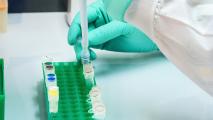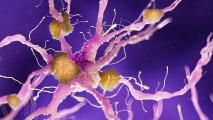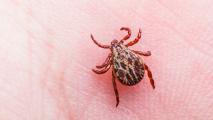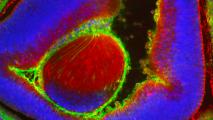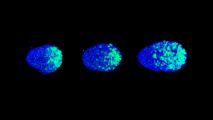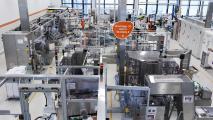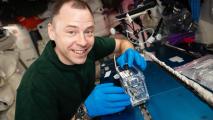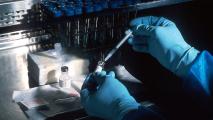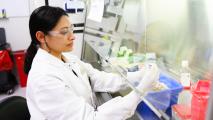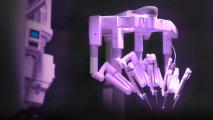
Biotech
Human history has been all but defined by death and disease, plague and pandemic. Advancements in 20th century medicine changed all of that. Now advancements in 21st century medicine promise to go even further. Could we bring about an end to disease? Reverse aging? Give hearing to the deaf and sight to the blind? The answer may be yes. And soon.
More
This bacteria can find a landmine
Bacteria that glow in the presence of a landmine may one day help save lives.
Oxford launches HIV vaccine trial
The University of Oxford’s newly launched HIV vaccine trial will test a unique approach to protecting people against the AIDS-causing virus.
Natural killer cells fight cancer without collateral damage
Researchers at McMaster have developed a form of immunotherapy capable of working on solid tumors in the lab.
Scientists call Alzheimer’s amyloid theory into question
What if amyloid plaques are not the cause of Alzheimer’s, but instead a symptom? New research suggests restoring liquid amyloid may be key.
Disease-resistant pigs may be heading to farms soon
Using gene editing, researchers created disease-resistant pigs that could save the pork industry billions of dollars every year.
Castration linked to younger DNA and biological age
A study measuring biological age in castrated sheep has yielded a discovery that could inform anti-aging research for people.
Series|
Just Might Work
Is DMT the best new treatment for depression?
Psychedelic therapy could bring the ancient healing powers of drugs like DMT into mental health clinics.
Will we finally get another human Lyme disease vaccine?
Pfizer and French vaccine maker Valneva are one step closer to bringing a human Lyme disease vaccine to market.
Anyone can now make mouse-human chimeras
A newly published how-to guide for making mouse-human chimeras could lead to treatment breakthroughs for countless diseases.
Can AI cameras predict suicide attempts at bridges?
Seoul is deploying an AI-powered camera system designed to predict suicide attempts at bridges and send rescuers to help people in distress.
Mouse embryos with beating hearts grown from stem cells
Mouse embryos with muscles, blood vessels, and beating hearts have been grown from stem cells — bringing lab-grown organs closer to reality.
Sky-mapping system can predict whether cancer treatment will work
Johns Hopkins researchers are using image analysis developed for astronomy to study cancer immunotherapy.
New CRISPR tech could help us create superior crops of the future
A new CRISPR technology that focuses on gene activation rather than deactivation could help us create the superior crops of the future.
Hair-thin spine stimulator could relieve severe back pain
A new implant that delivers pain-relieving spinal cord stimulation can be put into place using just a needle — no invasive surgery required.
Pharma giant GSK embraces digital twins for vaccine development
Pharma leviathan GlaxoSmithKline is rolling out digital twins to help create “the vaccine factory of the future.”
Astronauts use CRISPR in space for first time
A first-of-its-kind experiment using CRISPR in space could help protect astronauts from DNA damage on long trips beyond Earth’s atmosphere.
“LEGO-like” vaccine protects mice from COVID, SARS, MERS, and variants
Using a “chimeric” spike protein, researchers have immunized mice against multiple types of coronaviruses with one shot.
CRISPR therapy cures first genetic disorder inside the body
For the first time, researchers appear to have effectively cured a genetic disorder by directly injecting a CRISPR therapy into patients’ bloodstreams.
Diagnosing infections without the lab — or wait
Researchers have developed a device that can test for infections in under an hour, no lab needed.
Inside the world of a robotic surgeon
Many of the world’s top surgeons are learning first-hand what they can do with surgical robots — and it’s unlocking a new era in health care.
Get inspired with the most innovative stories shaping the world around us.














